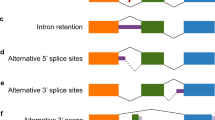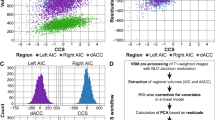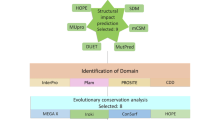Abstract
The development of molecular psychiatry in the last few decades identified a number of candidate genes that could be associated with schizophrenia. A great number of studies often result with controversial and non-conclusive outputs. However, it was determined that each of the implicated candidates would independently have a minor effect on the susceptibility to that disease. Herein we report results from our replication study for association using 255 Bulgarian patients with schizophrenia and schizoaffective disorder and 556 Bulgarian healthy controls. We have selected from the literatures 202 single nucleotide polymorphisms (SNPs) in 59 candidate genes, which previously were implicated in disease susceptibility, and we have genotyped them. Of the 183 SNPs successfully genotyped, only 1 SNP, rs6277 (C957T) in the DRD2 gene (P=0.0010, odds ratio=1.76), was considered to be significantly associated with schizophrenia after the replication study using independent sample sets. Our findings support one of the most widely considered hypotheses for schizophrenia etiology, the dopaminergic hypothesis.
Similar content being viewed by others
Log in or create a free account to read this content
Gain free access to this article, as well as selected content from this journal and more on nature.com
or
References
Owen, M. J., Williams, N. M. & O’Donovan, M. C. The molecular genetics of schizophrenia: new findings promise new insights. Mol. Psychiatry 9, 14–27 (2004).
Lang, U. E., Puls, I., Muller, D. J., Strutz-Seebohm, N. & Gallinat, J. Molecular mechanisms of schizophrenia. Cell. Physiol. Biochem. 20, 687–702 (2007).
Lake, C. R. & Hurwitz, N. Schizoaffective disorders are psychotic mood disorders; there are no schizoaffective disorders. Psychiatry Res. 143, 255–287 (2006).
Sullivan, P. F. The genetics of schizophrenia. PLoS Med. 2, e212 (2005).
Riley, B. & Kendler, K. S. Molecular genetic studies of schizophrenia. Eur. J. Hum. Genet. 14, 669–680 (2006).
Harrison, P. J. & Owen, M. J. Genes for schizophrenia? Recent findings and their pathophysiological implications. Lancet 361, 417–419 (2003).
Costas, J., Torres, M., Cristobo, I., Phillips, C. & Carracedo, A. Relative efficiency of the linkage disequilibrium mapping approach in detecting candidate genes for schizophrenia in different European populations. Genomics 86, 280–286 (2005).
Rapoport, J. L., Addington, A. M., Frangou, S. & Psych, M. R. The neurodevelopmental model of schizophrenia: update 2005. Mol. Psychiatry 10, 434–449 (2005).
Moises, H. W., Zoega, T. & Gottesman, I. I. The glial growth factors deficiency and synaptic destabilization hypothesis of schizophrenia. BMC Psychiatry 2, 8 (2002).
Thome, J., Foley, P. & Riederer, P. Neurotrophic factors and the maldevelopmental hypothesis of schizophrenic psychoses. Review article. J. Neural. Transm. 105, 85–100 (1998).
Seeman, P., Guan, H. C., Nobrega, J., Jiwa, D., Markstein, R., Balk, J. H. et al. Dopamine D2-like sites in schizophrenia, but not in Alzheimer's, Huntington's, or control brains, for [3H]benzquinoline. Synapse 25, 137–146 (1997).
Talkowski, M. E., Seltman, H., Bassett, A. S., Brzustowicz, L. M., Chen, X., Chowdari, K. V. et al. Evaluation of a susceptibility gene for schizophrenia: genotype based meta-analysis of RGS4 polymorphisms from thirteen independent samples. Biol. Psychiatry 60, 152–162 (2006).
Glatt, S. J., Wang, R. S., Yeh, Y. C., Tsuang, M. T. & Faraone, S. V. Five NOTCH4 polymorphisms show weak evidence for association with schizophrenia: evidence from meta-analyses. Schizophr. Res. 73, 281–290 (2005).
Ohnishi, Y., Tanaka, T, Ozaki, K, Yamada, R, Suzuki, H & Nakamura, Y. A high-throughput SNP typing system for genome-wide association studies. J. Hum. Genet. 46, 471–477 (2001).
Hanninen, K., Katila, H., Kampman, O., Anttila, S., Illi, A., Rontu, R. et al. Association between the C957T polymorphism of the dopamine D2 receptor gene and schizophrenia. Neurosci. Lett. 407, 195–198 (2006).
Hoenicka, J., Aragüés, M., Rodríguez-Jiménez, R., Ponce, G., Martínez, I., Rubio, G. et al. C957T DRD2 polymorphism is associated with schizophrenia in Spanish patients. Acta. Psychiatr. Scand. 114, 435–738 (2006).
Lawford, B. R., Young, R. M., Swagell, C. D., Barnes, M., Burton, S. C., Ward, W. K. et al. The C/C genotype of the C957T polymorphism of the dopamine D2 receptor is associated with schizophrenia. Schizophr. Res. 73, 31–37 (2005).
Monakhov, M., Golimbet, V., Abramova, L., Kaleda, V. & Karpov, V. Association study of three polymorphisms in the dopamine D2 receptor gene and schizophrenia in the Russian population. Schizophr. Res. 100, 302–307 (2008).
Seeman, P. & Kapur, S. Schizophrenia: more dopamine, more D2 receptors. Proc. Natl Acad. Sci. USA 97, 7673–7675 (2000).
Zakzanis, K. K. & Hansen, K. T. Dopamine D2 densities and the schizophrenic brain. Schizophr. Res. 32, 201–206 (1998).
Miyamoto, S., Snouwaert, J. N., Koller, B. H., Moy, S. S., Lieberman, J. A., Duncan, G. E. et al. Amphetamine-induced Fos is reduced in limbic cortical regions but not in the caudate or accumbens in a genetic model of NMDA receptor hypofunction. Neuropsychopharmacology 29, 2180–2188 (2004).
Cravchik, A., Sibley, D. R. & Gejman, P. V. Functional analysis of the human D2 dopamine receptor missense variants. J. Biol. Chem. 271, 26013–26017 (1996).
Duan, J., Wainwright, M. S., Comeron, J. M., Saitou, N., Sanders, A. R., Gelernter, J. et al. Synonymous mutations in the human dopamine receptor D2 (DRD2) affect mRNA stability and synthesis of the receptor. Hum. Mol. Genet. 12, 205–216 (2003).
Seeman, P. & Van Tol, H. H. Dopamine receptor pharmacology. Trends Pharmacol. Sci. 15, 264–270 (1994).
Sibley, D. R. & Monsma, F. J. Jr Molecular biology of dopamine receptors. Trends Pharmacol. Sci. 13, 61–69 (1992).
Neville, M. J., Johnstone, E. C. & Walton, R. T. Identification and characterization of ANKK1: a novel kinase gene closely linked to DRD2 on chromosome band 11q23.1. Hum. Mutat. 23, 540–545 (2004).
Usiello, A., Baik, J. H., Rougé-Pont, F., Picetti, R., Dierich, A., LeMeur, M. et al. Distinct functions of the two isoforms of dopamine D2 receptors. Nature 408, 199–203 (2000).
Dubertret, C., Gouya, L., Hanoun, N., Deybach, J. C., Adès, J., Hamon, M. et al. The 3′ region of the DRD2 gene is involved in genetic susceptibility to schizophrenia. Schizophr. Res. 67, 75–85 (2004).
Suzuki, A., Kondo, T., Mihara, K., Furukori, H., Nagashima, U., Ono, S. et al. Association between Taq1 a dopamine D2 receptor polymorphism and psychopathology of schizophrenia in Japanese patients. Prog. Neuropsychopharmacol. Biol. Psychiatry 24, 1105–1113 (2000).
Itokawa, M., Arinami, T., Futamura, N., Hamaguchi, H. & Toru, M. A structural polymorphism of human dopamine D2 receptor, D2(Ser311 → Cys). Biochem. Biophys. Res. Commun. 196, 1369–1375 (1993).
Arinami, T., Itokawa, M., Enguchi, H., Tagaya, H., Yano, S., Shimizu, H. et al. Association of dopamine D2 receptor molecular variant with schizophrenia. Lancet 343, 703–704 (1994).
Glatt, S. J., Faraone, S. V. & Tsuang, M. T. Meta-analysis identifies an association between the dopamine D2 receptor gene and schizophrenia. Mol. Psychiatry 8, 911–915 (2003).
Glatt, S. J. & Jonsson, E. G. The Cys allele of the DRD2 Ser311Cys polymorphism has a dominant effect on risk for schizophrenia: evidence from fixed- and random-effects meta-analyses. Am. J. Med. Genet B Neuropsychiatr. Genet. 141, 149–154 (2006).
Arinami, T., Gao, M., Hamaguchi, H. & Toru, M. A functional polymorphism in the promoter region of the dopamine D2 receptor gene is associated with schizophrenia. Hum. Mol. Genet. 6, 577–582 (1997).
Glatt, S. J., Faraone, S. V. & Tsuang, M. T. DRD2 -141C insertion/deletion polymorphism is not associated with schizophrenia: results of a meta-analysis. Am. J. Med. Genet. B Neuropsychiatr. Genet. 128, 21–23 (2004).
Kukreti, R., Tripathi, S., Bhatnagar, P., Gupta, S., Chauhan, C., Kubendran, S. et al. Association of DRD2 gene variant with schizophrenia. Neurosci. Lett. 392, 68–71 (2006).
Allen, N. C., Bagade, S., McQueen, M. B., Ioannidis, J. P., Kavvoura, F. K., Khoury, M. J. et al. Systematic meta-analyses and field synopsis of genetic association studies in schizophrenia: the SzGene database. Nat. Genet. 40, 827–834 (2008).
Hirvonen, M., Laakso, A., Någren, K., Rinne, J. O., Pohjalainen, T. & Hietala, J. C957T polymorphism of the dopamine D2 receptor (DRD2) gene affects striatal DRD2 availability in vivo. Mol. Psychiatry 9, 1060–1061 (2004).
Acknowledgements
We express our gratitude to all members of the SNP Research Center (The Institute of Physical and Chemical Research) for their contribution to the completion of our study. We thank all patients, their families and all the healthy volunteers for their generous participation in this project. We are also grateful to the doctors from all the participating clinics in Bulgaria.
Author information
Authors and Affiliations
Corresponding author
Rights and permissions
About this article
Cite this article
Betcheva, E., Mushiroda, T., Takahashi, A. et al. Case–control association study of 59 candidate genes reveals the DRD2 SNP rs6277 (C957T) as the only susceptibility factor for schizophrenia in the Bulgarian population. J Hum Genet 54, 98–107 (2009). https://doi.org/10.1038/jhg.2008.14
Received:
Revised:
Accepted:
Published:
Issue date:
DOI: https://doi.org/10.1038/jhg.2008.14
Keywords
This article is cited by
-
Association of dopamine-based genetic risk score with dynamic low-frequency fluctuations in first-episode drug-naïve schizophrenia
Brain Imaging and Behavior (2023)
-
Childhood traumatic events and the dopaminergic theory of psychosis: A mini-review of studies investigating gene – environment interactions
Current Psychology (2023)
-
Investigating the association between common DRD2/ANKK1 genetic polymorphisms and schizophrenia: a meta-analysis
Journal of Genetics (2021)
-
Studies of the Association of Genetic Polymorphism C677T in the Methylenetetrahydrofolate Reductase Gene with Symptom Severity in Schizophrenia Patients
Neuroscience and Behavioral Physiology (2021)
-
PICK1 Genetic Variation and Cognitive Function in Patients with Schizophrenia
Scientific Reports (2017)



